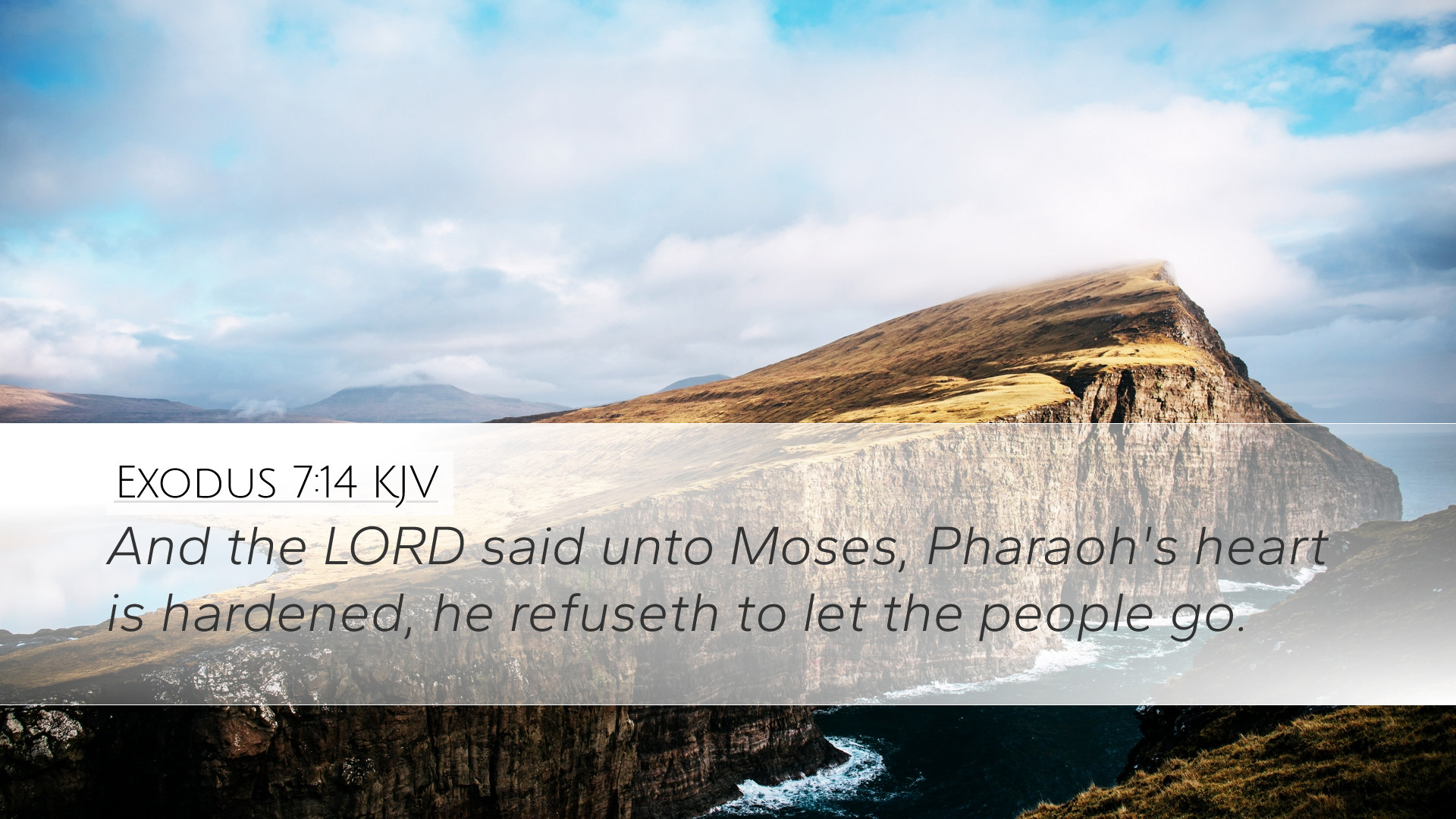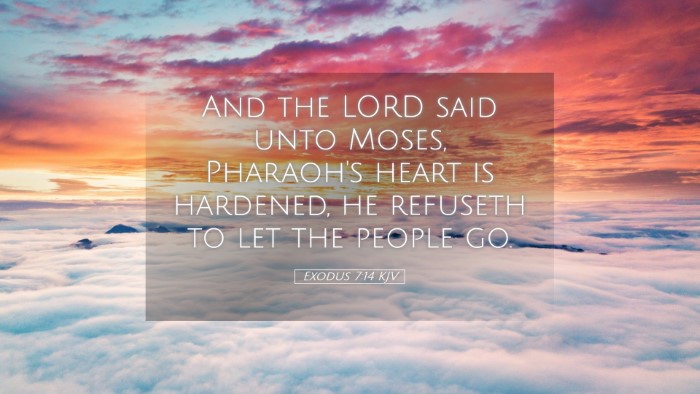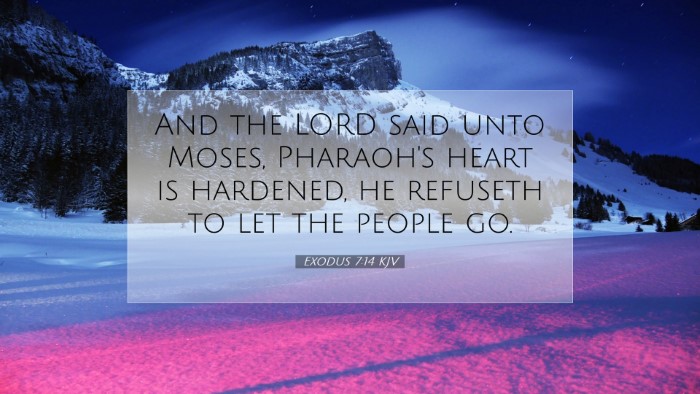Exodus 7:14 Commentary
Exodus 7:14 states:
"Then the LORD said to Moses, 'Pharaoh's heart is hard; he refuses to let the people go.'" (ESV)
Introduction
This verse marks a critical moment in the narrative of the Exodus, illustrating the tension between divine will and human obstinacy. The refusal of Pharaoh to release the Israelites becomes a profound symbol of resistance against God’s commands.
The Divine Command
Divine Sovereignty: The verse underlines God’s authority over Pharaoh’s heart, illustrating the theme of divine sovereignty. According to Matthew Henry, this hardening is a means to display God’s power and glory through the forthcoming plagues.
- Understanding Hardness: The term "hardness" reflects a state of spiritual insensitivity. As noted by Albert Barnes, this hardness is not just a trait but a divine judgment allowing Pharaoh to act in his natural disposition against God.
- The Role of Free Will: Adam Clarke raises important questions regarding the balance of free will and predestination in this context. Pharaoh’s deliberate choice to be obstinate showcases a complex interplay where divine sovereignty meets human choice.
The Character of Pharaoh
Pharaoh is portrayed as a figure of immense power yet blinded by pride. His refusal to heed God’s command exemplifies a profound spiritual blindness and resistance:
- Pride and Arrogance: Pharaoh’s self-reliance and refusal to acknowledge God place him at odds with divine will.
- Judgment and Consequence: The commentary suggests that this hardening of his heart serves as both a judgment and a precursor to the upcoming trials, allowing God’s glory to be demonstrated through the plagues.
Theological Implications
This verse invites significant theological reflection:
- The Nature of God’s Sovereignty: The hardening of Pharaoh’s heart raises questions about God’s control over human affairs. As Henry remarks, this does not negate Pharaoh’s agency but uses human stubbornness to manifest divine power.
- Understanding Divine Judgment: God’s hardening serves a dual purpose: it allows Pharaoh to act according to his own sinful inclinations while simultaneously revealing God’s power to both Israel and Egypt.
Application for Believers
The insights from Exodus 7:14 resonate deeply with contemporary believers:
- Reflection on Submission: The refusal of Pharaoh highlights the importance of responding to God’s call with humility and submission.
- Warning Against Hardness of Heart: Just as Pharaoh’s heart was hardened, Christians are reminded to guard against spiritual pride and insensitivity.
Conclusion
Exodus 7:14 encapsulates a profound moment of revelation regarding the nature of God, human agency, and the unfolding drama of salvation history. The critical insights from Matthew Henry, Albert Barnes, and Adam Clarke provide a multi-faceted understanding of this key biblical text. As believers keenly observe Pharaoh’s obstinacy, they are called to reflect on their own responsiveness to God’s directives.


